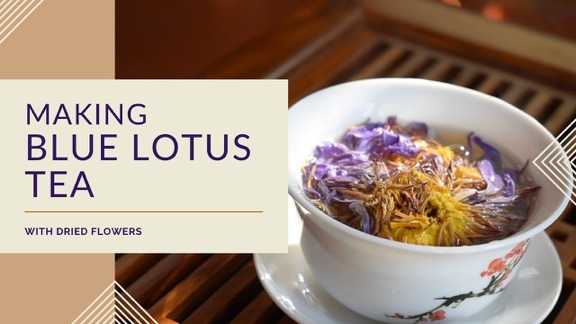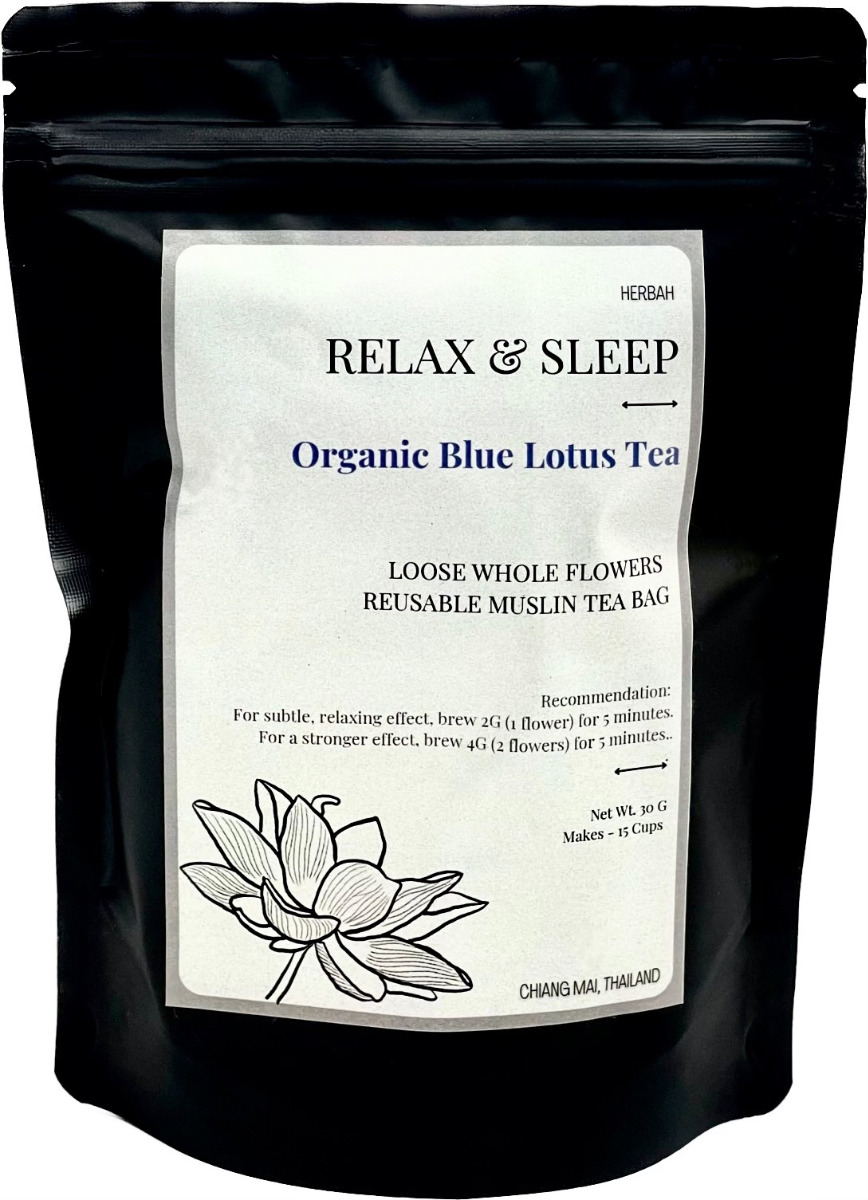Health Benefits and Historical Significance of Blue Lotus Tea

Health Benefits and Historical Significance of Blue Lotus Tea
Blue Lotus Tea, a beverage with a history rooted in ancient civilizations, has been cherished not only for its intriguing cultural significance but also for the numerous health benefits it offers. In this comprehensive exploration, we will delve into the holistic advantages of Blue Lotus Tea, focusing on both physical and mental well-being. We'll also take a step back in time to appreciate the historical importance of this exquisite brew.
A Holistic Overview
Blue Lotus Tea, derived from the Blue Lotus flower (Nymphaea caerulea), has been used for centuries for its versatile range of health benefits. Let's begin by taking a closer look at its holistic advantages:
Nurturing Physical Well-being
Blue Lotus Tea, often referred to as the "Sacred Lily of the Nile," boasts an array of physical health benefits. Its natural compounds have been linked to pain relief and anti-inflammatory properties. These properties are especially valuable for those who suffer from chronic pain or inflammatory conditions. While further research is needed, early findings suggest that Blue Lotus Tea may offer a natural alternative to traditional pain management.
Enhancing Mental Well-being
In today's fast-paced world, mental well-being is of paramount importance. Blue Lotus Tea has garnered attention for its potential to alleviate anxiety and stress. It is known to induce a state of relaxation without the sedative side effects commonly associated with pharmaceutical options. Consumed as a calming tea, Blue Lotus can provide a sense of tranquility and serenity to those who seek respite from life's demands.
Historical Significance
To fully appreciate the cultural and historical significance of Blue Lotus Tea, we must travel back in time to ancient Egypt. The Blue Lotus flower, scientifically known as Nymphaea caerulea, was not just a botanical marvel; it held a special place in the spiritual and everyday life of ancient Egyptians. It was revered for its symbolism of rebirth, transformation, and the cycle of life. In ancient Egyptian mythology, the Blue Lotus was associated with the Sun God Ra, the god of creation and rebirth.
Egyptians were known to use Blue Lotus as an integral part of religious ceremonies, often consuming it as a tea or a smoking blend. The flower was believed to have a divine connection, providing a pathway for communication with the gods. Its psychoactive properties were well-documented, and it played a role in their spiritual rituals.
The historical significance of Blue Lotus extends beyond Egypt. It also finds a place in the historical records of ancient India, where it was used as a symbol of purity, and in ancient Mesoamerican cultures, where it was regarded as a plant of great importance.
Conclusion
In conclusion, Blue Lotus Tea is more than just a beverage, it's a bridge between the past and the present. Its diverse range of health benefits, including its potential to alleviate physical discomfort and promote mental well-being, make it a remarkable herbal remedy. Moreover, its historical significance, deeply rooted in the traditions of ancient civilizations, adds an enchanting layer to its allure. As we sip this ancient elixir today, we not only enjoy its tangible benefits but also partake in the rich tapestry of human history. Blue Lotus Tea truly represents the harmonious blend of ancient wisdom and modern well-being.





 Over 500 health and wellness products
Over 500 health and wellness products Everyday savings and weekly promotions
Everyday savings and weekly promotions The best natural and organic produce from around the world
The best natural and organic produce from around the world Committed to you - over 10 years of trusted service
Committed to you - over 10 years of trusted service



